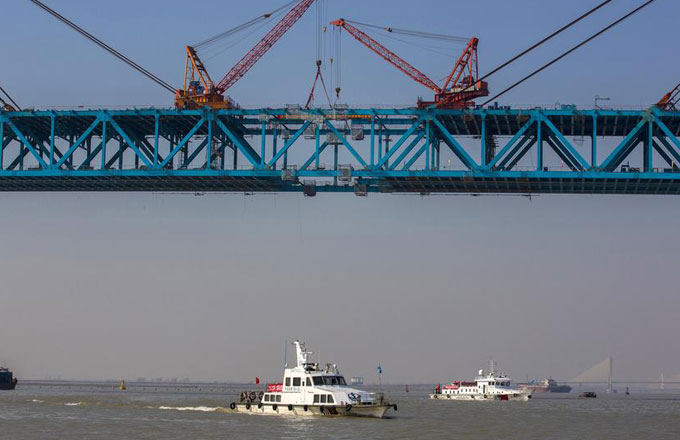Relocation to support 'ecological migrants'
A mass resettlement project for "ecological migrants" in China does not force ethnic groups to abandon their traditional culture and way of living, a senior official said on Sunday.
Zhang Yongli, deputy head of the State Forestry Administration, made the remarks during a news conference held by the State Council Information Office. He was asked by a reporter whether ecological migrants are struggling under a government-led project, thought to be the world's largest environmental migration project.
"The areas where the migrants come from do not have even the most basic facilities required for human survival and development," he said. "This would make it impossible for them to maintain their traditional culture and way of living.
"The project aims to help migrants improve their living standards, so their cultural heritage can be protected and passed down better than before," he added.
According to the State Forestry Administration, areas affected by desertification and sandification account for nearly 20 percent of China's territory. In some areas, land sandification is expanding, with another 310,000 square kilometers likely to suffer from sandification in the near future.
Against this backdrop, many people in the Inner Mongolia, Xinjiang, Tibet, and Ningxia Hui autonomous regions, as well as Gansu and Qinghai provinces, had to leave their homes, which had become distressed by desertification, climate change, industrialization and human activities.
Jia Yaofeng, a professor at Beifang University of Nationalities and an expert on climate change, said China started ecological migration exploration as early as 1983 when the central government targeted three regions in Gansu and Ningxia Hui autonomous region. The project was then expanded to include more regions that were struggling with poverty and desertification.
"Based on the results in central and western areas of China, moving people out of their homes has helped to mitigate local environmental pressure and helped migrants to improve their lives," Jia said. "However, we must admit that there are problems brought by mass resettlement."
Wang Yuming, vice-chairman of the government of the Inner Mongolia autonomous region, said all resettlement is proceeding based on the will of local residents. "We have relocated more than 200,000 people and we will relocate another 200,000."
He added that places that embrace ecological migrants have mature industries.
"Resettlement encourages local urbanization. Urbanization means more job opportunities, and people want to move to cities where jobs are available," he said.
























